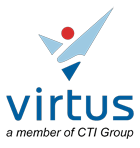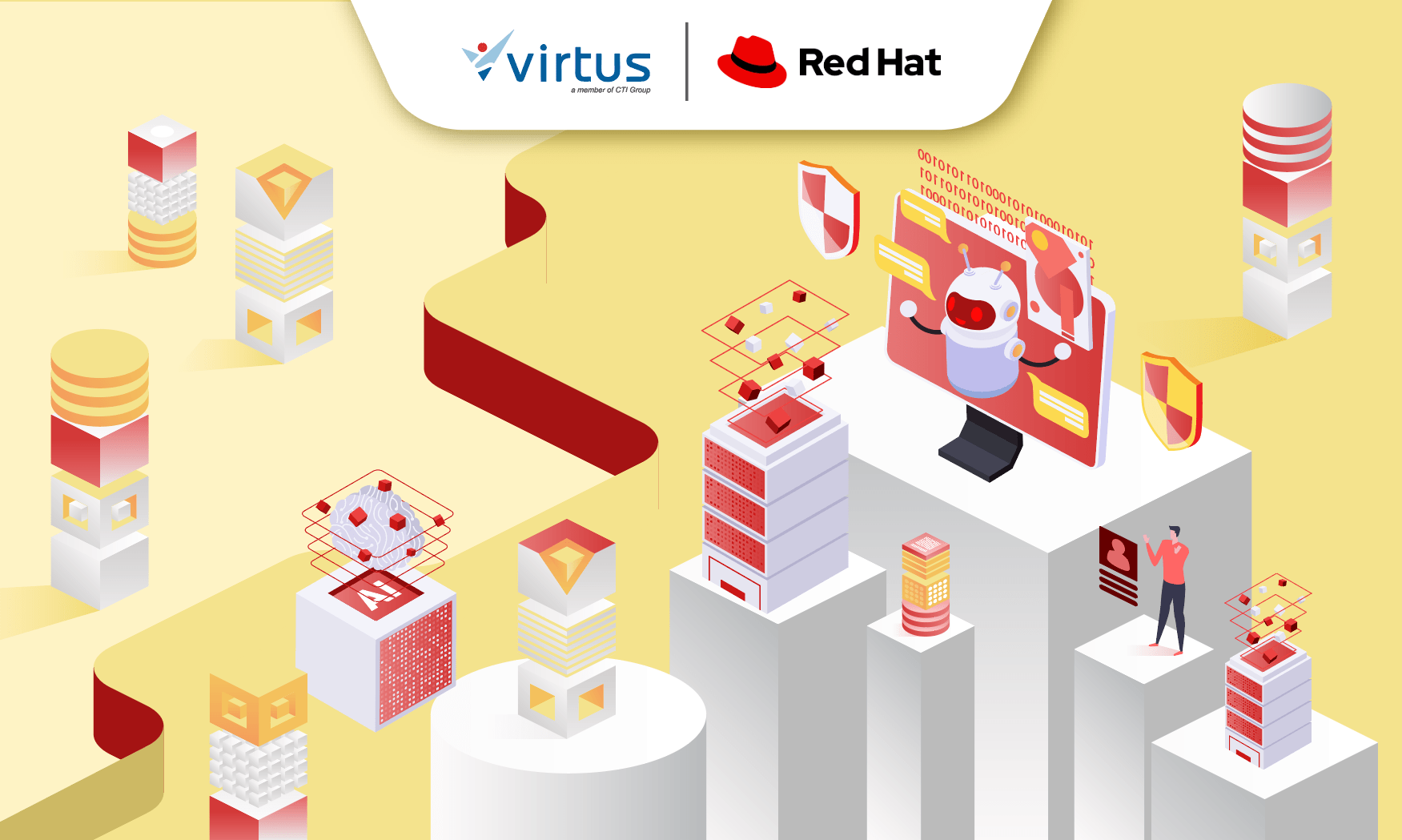Are you looking for a more agile IT operations team that can quickly adapt to managing an increasingly complex IT environment? It’s certainly not an easy task. That’s why IT Automation is becoming an increasingly popular solution for companies. Its goal is to help automate manual tasks so that IT teams can reduce routine workloads and focus more on innovation. Besides cutting operational costs, it can also minimize various potential human errors.
However, it is important to note that implementing IT Automation also brings challenges. In this article, Virtus will provide a straightforward explanation of what IT Automation is, the benefits it offers, and the challenges that need to be addressed during its implementation.
What is IT Automation?
In simple terms, IT Automation is the process of using software or tools to perform repetitive IT tasks automatically, without human intervention.
Imagine instead of performing the same tasks repeatedly, like configuring servers or updating software, you could rely on an automated system to handle it for you.
What Are the Benefits of IT Automation for Businesses?

In a business context, IT Automation aims to enhance efficiency and productivity, reduce operational costs, and minimize the risk of human error.
Here are some key benefits of using IT Automation:
Increased Efficiency
Many routine and manual tasks can be automated, reducing the time and costs required to complete them.
Improved Consistency
IT Automation ensures that the same tasks are performed in the same way every time, resulting in consistent and reliable output.
Enhanced Security
It can help identify and address emerging security issues, reducing the risk of cyber-attacks.
Reduced Human Errors
By automating tasks that require human intervention, the risk of human errors is minimized.
Time and Cost Savings
IT Automation helps businesses save time and money on routine and manual tasks, allowing human resources to focus on more complex and important tasks.
Challenges of Implementing IT Automation for Businesses
Alongside the benefits, there are several challenges in implementing IT Automation, such as:
Resource Constraints
It requires significant initial investment. Companies need to consider costs related to hardware, software, and human resources. This can be a barrier for companies with limited budgets.
Skill Limitations
Companies need a skilled and experienced team to manage technology and ensure that automation systems function properly. A lack of skills or shortage of personnel with adequate technological expertise can be a challenge.
Complex System Integration
Proper system integration and ensuring all systems can communicate with each other is crucial in IT Automation. However, complex system integration can be a challenge for companies.
Security Policies
Companies need to ensure that stringent security policies are applied to protect data and prevent unauthorized access. However, implementing strict security policies can slow down IT Automation.
Cultural Change
IT Automation can bring cultural changes to a company, where it may need to adjust work processes and introduce new procedures.
Still unsure how to manage all these challenges? Don’t worry, Red Hat Ansible Automation Platform from Virtus provides a flexible IT system automation solution, including automatic provisioning to cloud, storage, and infrastructure components, allowing your business to focus more on innovation without wasting time.
Red Hat Ansible Automation Platform: AI-Based IT Automation Solution
Red Hat Ansible Automation Platform is an automation solution designed to help organizations manage, automate, and optimize various IT processes in an integrated and scalable manner.
This platform provides a suite of tools and features that enable automation of routine tasks, management of IT infrastructure, and facilitation of advanced technology adoption, such as AI and IT automation engines that automate provisioning, configuration management, application deployment, orchestration, and other IT processes.
Using the Ansible Automation Platform is straightforward for automating cloud provisioning, configuration management, application deployment, intra-services orchestration, and various IT needs.
Designed for multi-tier deployment, the Ansible Automation Platform allows for the design of business IT infrastructure by describing how the entire IT system interconnects, rather than managing one system at a time. Additionally, this solution does not use agents or additional custom security infrastructure, making it easy to deploy.
Most importantly, Ansible uses the simplest language (YAML, which is part of Ansible Playbook), allowing you to describe automation tasks in a way that uses plain English.
How Can Red Hat Ansible Automation Platform Improve Efficiency for Innovation?
With Red Hat Ansible Automation Platform, businesses can focus more on their innovation since there is no need to spend time figuring out the best way to automate IT infrastructure.
Moreover, companies will practically standardize their automation because this solution can work across the organization, connecting users across IT domains to streamline orchestration and provide governance across various situations.
Not only that, Red Hat Ansible Automation Platform also offers flexibility in IT system automation by performing automatic provisioning to cloud providers, storage solutions, and infrastructure components.
Also Read: What Is Ansible Automation and How It Can Automate Your IT
7 Advantages of Red Hat Ansible Automation Platform
Red Hat Ansible Automation Platform features several advantages that can help ensure smooth IT infrastructure automation, including:
1. Automation Execution Environment
The automation execution environment is a container image used to run roles and Ansible Playbooks. This environment provides a definite, consistent, and portable way to build and distribute automation environments across production and development.
2. Scaling and Automation Standards
Businesses gain the ability to standardize how automation is deployed, initiated, delegated, and audited. The automation controller allows users to define, operate, and scale automation across their network.
This enables them to manage inventories, launch and schedule workflows, track changes, and integrate with reports from REST API and centralized interfaces.
3. Automation Framework for Scaling
Businesses also benefit from an automation mesh that provides a simple, flexible, and reliable way to scale large automation inventories across different network topologies, platforms, and regions.
Additionally, the automation mesh provides flexible design options for building resilient architectures while delivering maximum security to standardize automation across IT systems, from core data centers to the edge.
4. Automation-as-a-Service
Offers Automation-as-a-Service solutions that enable various teams within the organization to use automation without requiring deep technical expertise. This simplifies the deployment of automation across the enterprise.
5. Risk Mitigation and Enhanced Security
Consistent security policies ensure uniform security standards, while automated security monitoring and response enable quick detection and handling of threats. Using a security-enhanced platform reduces risks by providing additional protection and improving system reliability.
6. Improved IT Team Effectiveness (ITOps)
Event-Driven Ansible automates IT actions with rule-based constructs, while options for managed or self-managed deployments are tailored to needs. Accelerating content creation with certified collections from Red Hat and partners enhances operational efficiency.
7. Foundation for AI Adoption
Standardizing IT operations with automation flows that can train AI using Ansible Playbooks and Rulebooks, and developing Automation-as-Code strategies helps facilitate integration and scalability of automation technologies.
Also Read: Red Hat Insight Reduces the Risk of System Failure while Updating Systems
Learn More About Red Hat Ansible Automation Platform with Virtus
As a value-added distributor of Red Hat, Virtus offers IT automation solutions that can help your business modernize systems in an easy and effective way. You can obtain Red Hat Ansible Automation Platform from Virtus right now.
Virtus will assist you in implementing Red Hat Ansible Automation Platform at every stage, from consultation to post-sales support, through a reliable and certified team.
By collaborating with us, you won’t need to worry about wasting time and resources figuring out what works and what doesn’t, as we are available 24/7 to help you address any issues that may arise in your IT infrastructure. For more information, contact us through the following link.
Author: Ary Adianto
Content Writer CTI Group



























